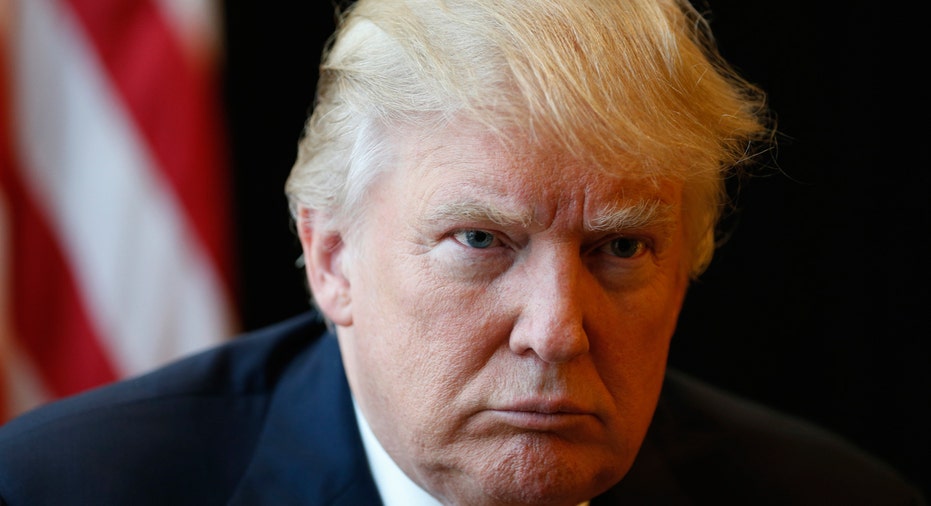Tech Elites Gang Up on Trump

Worldwide venture capital funding has dropped for a fourth consecutive quarter. While the private equity bubble is deflating, Silicon Valley remains in an ideological and rhetorical bubble that’s increasingly disconnected from the realities of mainstream America.
It’s no surprise that 145 tech leaders came out against Donald Trump’s candidacy for president last week. As I often say, if Silicon Valley leaned any further left, it would fall into the Pacific Ocean.
What is surprising is the depth to which the unicorn generation has become immersed in elitist hypocrisy. Their perspective has narrowed to the point where they can no longer see just how myopic it is.
Like the mythical beast that has come to represent this boom cycle, there is a distinctly magical quality to the rose-colored prism through which these people see the world. But one thing is clear: They do not want Trump mucking up their utopian fantasy.
The open letter signed by a laundry list of VCs, founders and executives was apparently written by Katie Jacobs Stanton, CMO at Color Genomics and former media veep at Twitter. Prior to that she worked for the State Department and the White House, under Hillary Clinton and Barack Obama, respectively.
Again, the political affiliation is not a news flash, nor is the signees’ beef with the Donald. They don’t like his stance on immigration or his non-politically correct rhetoric, which runs counter to the vaunted diversity and inclusion narrative they so strongly believe in. And that’s where the hypocrisy begins.
First things first: I don’t have an issue with the tech industry’s track record on gender and racial diversity. I believe it’s largely a supply issue. But then, I’m very much in the minority on that front, to say the least.
It’s not hyperbole to say that Silicon Valley has been lambasted by the media for its predominant white maleness. The Rev. Jesse Jackson has had a field day shaking down Apple, Facebook, Google, HP and others over their disproportionately low percentage of blacks and Hispanics, especially in technical and management jobs.
And the tech industry’s reportedly sexist, frat boy culture has spawned an entire lexicon of bro bite terminology such as bro culture, bro bubble and brogrammers. Funny thing is, Jackson signed the open letter, as did several outspoken women leaders on the Valley’s sexism problem. You’ve got to laugh at the irony.
As I see it, the tech sector does have one real discrimination problem, although it doesn’t get nearly the airplay that racial and gender controversies get: Ageism. The median age across a wide swath of the tech sector is 32 – 10 years younger than that of the U.S. labor force, according to PayScale and the Bureau of Labor Statistics.
And contrary to the situation with minorities and women, the ageism problem does not appear to be a supply issue. In fact, federal investigators recently launched an investigation into Google’s hiring practices over multiple complaints of age discrimination. The average age of the search company’s employees is 29.
I don’t know how these leaders can keep a straight face while calling out Trump on diversity and inclusion. Talk about duplicity.
Likewise, the letter is strewn with ludicrous statements that simply don’t pass the laugh test, including “we believe in a free and open exchange of ideas,” and American innovation is “a source of widely-shared prosperity.”
In my view, nothing could be further from the truth. Aside from open source – practiced by a handful of companies and initiatives like Red Hat, Firefox and WordPress – the overwhelming majority of tech products are based on proprietary technology that rakes in revenues and profits.
And in Jaron Lanier’s You Are Not a Gadget, the well-respected virtual reality pioneer demonstrates that the Internet economy concentrates wealth among fewer and fewer people and companies. I completely agree with his hypothesis that Web 2.0 makes the rich richer while making the content-generating masses poorer.
The most telling sign that these leaders are living in a bubble is that they seem to be completely unaware that the middle class is being squeezed by growing wealth disparity, our economy has never fully recovered from the financial crisis of 2007 and American businesses face an ever-growing tax and regulatory burden.
Likewise, there’s no mention of a world in turmoil over the threat of radical Islamic terrorism, the systemic problems arising from our broken immigration system, or the war that anarchists are waging on the only people who stand between them and the bad guys, law enforcement.
But they do stand opposed to Trump’s “fundamental belief that America is weak and in decline.” I’ve got news for them. If this is strong and prosperous, we’re in big trouble.
One Silicon Valley leader who supports Trump’s views and frankness and is slated to speak at the Republican Convention is Peter Thiel. The billionaire venture capitalist and serial entrepreneur told the Wall Street Journal, “Most Americans agree that our country is on the wrong track,” he said. “I don’t think we can fix our problems unless we can talk about them frankly. That is why I am going to speak in Cleveland, and that is why I will support the Republican nominee.”
You’ve got to admire Thiel for having the guts to speak out against powerful cultural norms, and for participating in the democratic process, unlike those who took the easy path by signing a measly 400-word post on Medium in a vain attempt to throw their weight around and influence others.
Reminds me of why our forefathers broke from England in the first place: to get away from the self-important, self-appointed elites imposing their will upon us and found a land where each one of us has an equal vote. Maybe Silicon Valley’s leaders should read up on how this democracy thing is supposed to work.



















